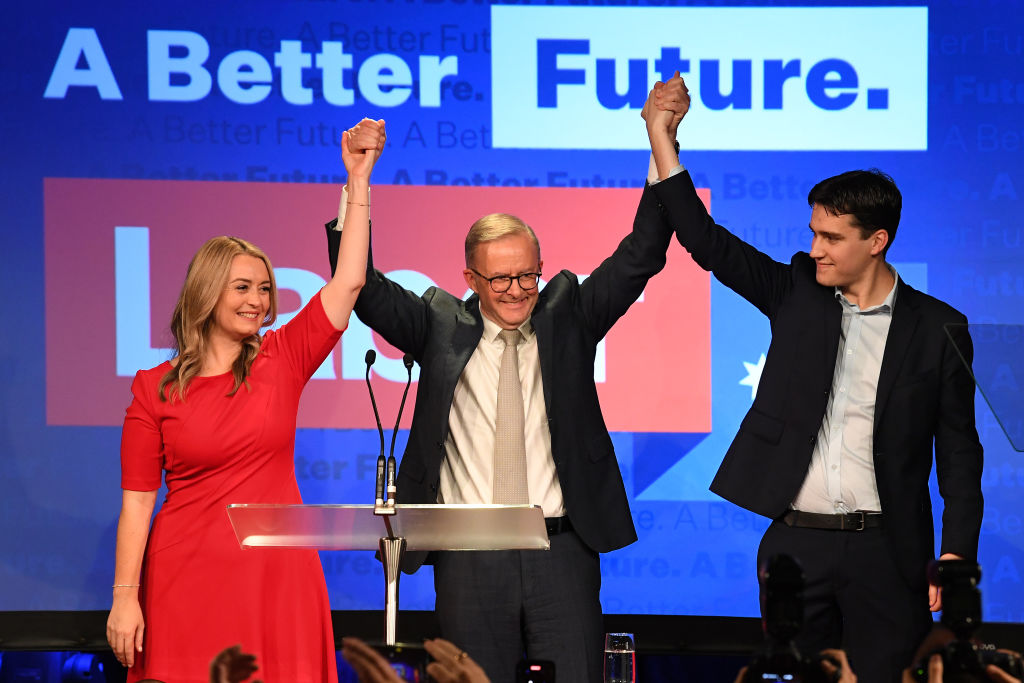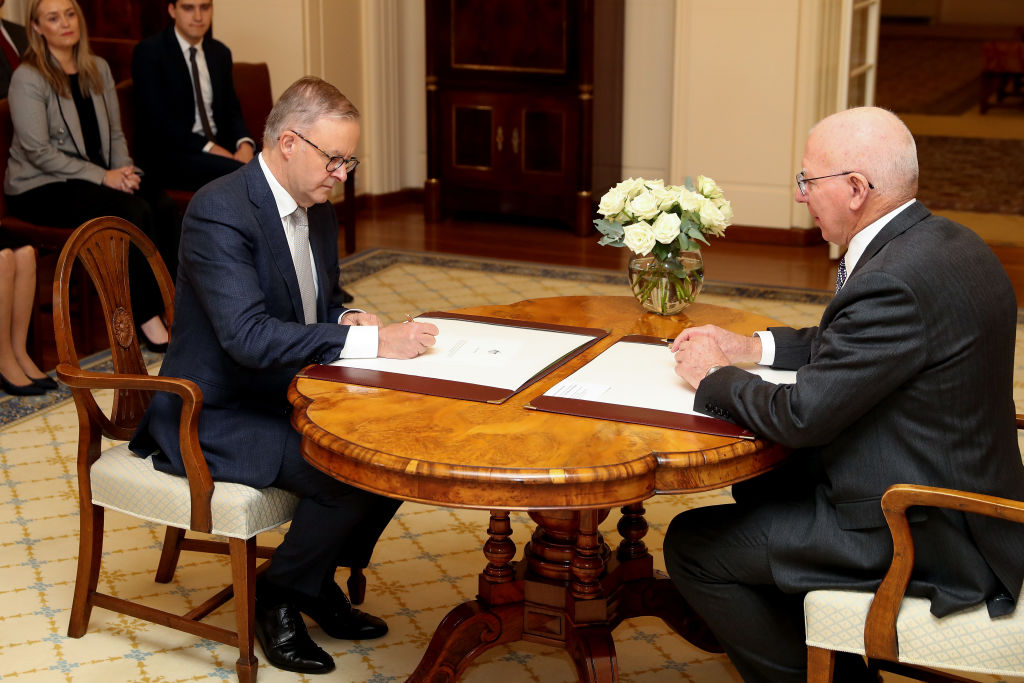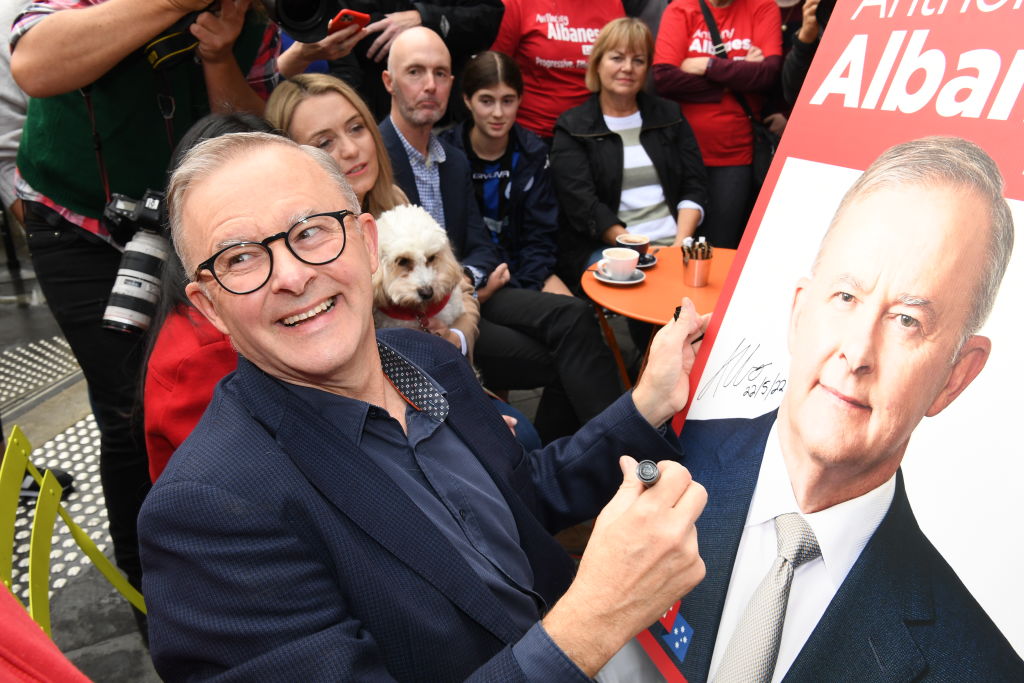
Anthony Albanese is set to become Australia’s next prime minister, after voters delivered a stinging rebuke of the ruling conservative government on May 21.
More than 17 million voters went to the polls on Saturday in an election that will see Albanese, the leader of the center-left Labor Party, unseat incumbent prime minister Scott Morrison, of the center-right Liberal Party.
Some voters have accused Morrison, who has been the prime minister since 2018, of lacking leadership. He faced backlash for taking a holiday in Hawaii in Dec. 2019, during the most devastating bushfires to hit the country in decades.
Although the economy and the cost of living were at the center of the campaign, it appears climate change was at the top of voters’ minds. Morrison has faced criticism for a lack of action on climate change–pumping tens of millions of dollars into a “gas-led” recovery from the pandemic. Albanese’s labor government has promised tougher emission reduction targets; the election also saw a major swing towards independent candidates that support climate action, and it offered a boost for the Greens Party.
Morrison admitted during the campaign that he was a “bit of a bulldozer” and he promised to listen to Australians if he was re-elected, but his appeals didn’t work. He delivered a concession speech late on Saturday night. It appears that several other high profile Liberal Party members of parliament, like the treasurer Josh Frydenberg, will also lose their seats.
Whichever party gets a majority in the House of Representatives—76 of 151 seats—forms a government. It’s not yet clear if the Labor Party will be able to get to 76 seats, or if it will have to form a coalition with minor parties and independents. Just over 70 seats have been called for the Labor Party.
Either way, Albanese will be sworn in as Australia’s 31st prime minister on Monday. Here’s what to know about him.

What is Anthony Albanese’s background?
The 59-year-old is a longtime politician who has served as a member of parliament for more than two decades. He was a cabinet minister under the governments of Kevin Rudd and Julia Gillard, and he was appointed as Rudd’s deputy prime minister in 2013. He has been the leader of the Australian opposition since 2019.
He was born in Sydney and raised by a single mother in a public housing estate. “He comes from this sort of underdog, Labor battler background,” says Stewart Jackson, the chair of the department of Government and International Relations at the University of Sydney. “He’s your working class man.”
Albanese has said that he has three great faiths: the Catholic Church, the Labor Party and the South Sydney Rabbitohs, a professional rugby league team.
Read More: Climate Could Change the Course of Australia’s Election
What will an Albanese government mean for Australia?
In a victory speech late on Saturday night, Albanese pledged to unite the country, saying he would lead a government “worthy of the people of Australia.”
“Tonight the Australian people have voted for change,” he said. “It says a lot about our great country that a son of a single mum who was a disability pensioner, who grew up in public housing down the road in Camperdown, can stand before you tonight as Australia’s prime minister.”
On the campaign trail, Albanese promised to improve gender equality in the workforce, to make childcare cheaper, and the publicly funded health system stronger, as well as to address issues with aged care. He also pledged new, more secure jobs and better pay.
“During the campaign, he’s presented himself as a fairly safe pair of hands, especially in terms of economic policy,” says Zareh Ghazarian, a political scientist at Monash University in Melbourne. “He comes from the left faction [of the Labor Party], which tends to be more socially progressive and tends to favor more socially progressive policies.”
But the difference between political parties in Australia is less pronounced than in the U.S., where the ideological divide between Republicans and Democrats is deepening.
“By and large, they agree on much of the basic structure of society,” says Jackson. “Basic liberal democracy, basic free markets, basic capitalism. Medicare is largely accepted as being important.”

What will a Labor victory mean internationally?
Albanese will travel to Tokyo this week on his first official international trip to meet leaders of the Quad security alliance from the U.S., Japan and India.
Australia is a close U.S. ally, and that isn’t expected to change. “He will follow along the well-trodden footsteps of many previous Labor leaders and will be a good friend of the United States,” says Jackson.
Relations between China and Australia have soured in recent years. In 2020, the Australian government called for an investigation into the origins of COVID-19, and China responded by slapping sanctions on some Australian exports like beef and barley. Some experts say the Labor Party may seek better relations with Beijing. “They do want better trade relations, more stable trade relations,” says Jackson.
He adds that a Labor government might also look to change the dynamic in the South Pacific. A recently agreed security pact between the Solomon Islands and China has been a hot topic in the country, because it could put a Chinese military base in a region that Canberra traditionally regards as its sphere of influence. “That dynamic for Albanese will be about using diplomacy, not aggressive talk,” says Jackson.
Read More: The Solomon Islands Are Becoming the Newest Scene of U.S.-China Tensions
Climate change is one issue of global concern where a change of government might have an impact. Australia has so far dragged its feet on climate action. Although climate advocates have not been impressed by Albanese’s promise to approve new coal mines, he is expected to be more climate-friendly than Morrison.
“I’d expect there to be a different approach, perhaps a more explicit, more forceful approach, towards climate change and climate change policies,” says Ghazarian. “In the past they’ve criticized the government on this…They have to demonstrate that they’re being proactive in this space”
In his victory speech, Albanese said that Australia now has an opportunity to end the “climate wars.”
More Must-Reads From TIME
- The 100 Most Influential People of 2024
- Coco Gauff Is Playing for Herself Now
- Scenes From Pro-Palestinian Encampments Across U.S. Universities
- 6 Compliments That Land Every Time
- If You're Dating Right Now , You're Brave: Column
- The AI That Could Heal a Divided Internet
- Fallout Is a Brilliant Model for the Future of Video Game Adaptations
- Want Weekly Recs on What to Watch, Read, and More? Sign Up for Worth Your Time
Write to AMY GUNIA / LAUNCESTON, AUSTRALIA at amy.gunia@time.com